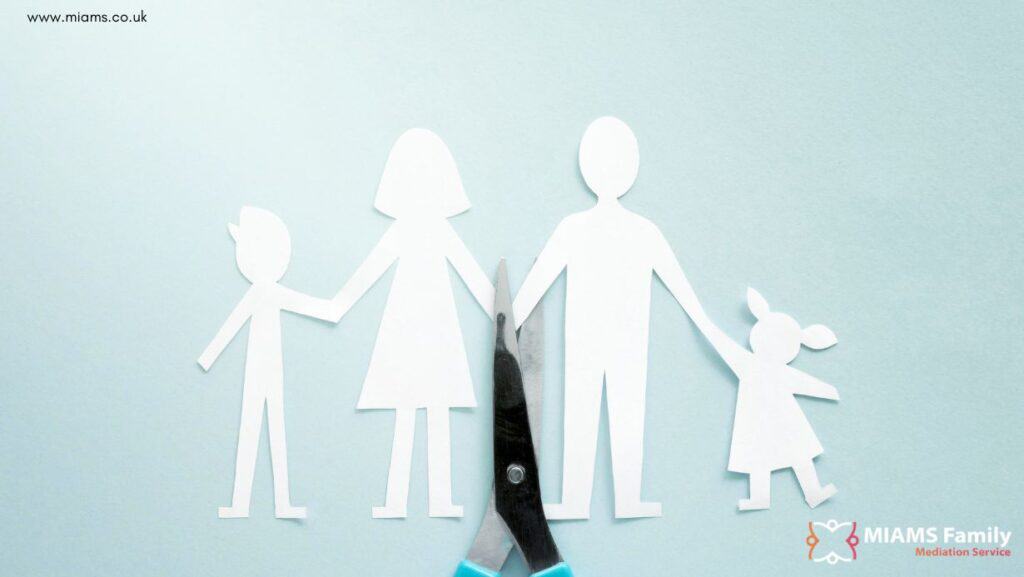How Can Family Mediation Help Me – What Is Family Mediation, and How Does It Work?
Introduction
Family disputes can be emotionally and financially draining, especially when legal battles are involved. Family mediation offers an alternative approach to resolving conflicts in a less adversarial and more constructive way. But what exactly is family mediation, and how does it work?
How Can Family Mediation Help Me – What is Family Mediation?
Family mediation is a structured process where a neutral third-party mediator helps family members communicate and negotiate agreements on various issues. These can include divorce settlements, child custody arrangements, financial disputes, and other family-related conflicts.

How is Family Mediation Different From Going to Court?
When family conflicts arise, many people assume that going to court is the only option. However, family mediation offers an alternative that is often faster, less stressful, and more cost-effective. While both processes aim to resolve disputes, they operate in very different ways. Understanding these differences can help you decide which approach is best for your situation.
A Cooperative Approach vs. a Legal Battle
One of the biggest differences between family mediation and court proceedings is the overall approach. Mediation is centered on cooperation and problem-solving, where a neutral mediator helps both parties communicate and reach a voluntary agreement. The focus is on finding a solution that works for everyone involved.
In contrast, court proceedings are adversarial by nature, with each party presenting their case and a judge making the final decision. This legal battle often creates a win-lose situation, which can increase tension and make future communication more difficult—especially when children are involved.
How Can Family Mediation Help Me – Control Over the Outcome
In family mediation, both parties actively participate in shaping the final agreement. They have the opportunity to express their needs, concerns, and preferences while working toward a compromise.
Because mediation is voluntary, no decision is imposed on either party unless they both agree. On the other hand, when a case goes to court, the judge has the final say. Even if neither party is fully satisfied with the ruling, they must abide by the decision. This loss of control can make court proceedings feel frustrating and unpredictable.

Who Can Benefit From Family Mediation?
Family mediation is often associated with divorce, but it can be beneficial in a wide range of family disputes. Mediation offers a structured, non-confrontational way to resolve conflicts, helping families avoid the stress and expense of court battles. But who exactly can benefit from family mediation? The answer might be broader than you think.
How Can Family Mediation Help Me – Divorcing or Separating Couples
One of the most common groups that benefit from family mediation is divorcing or separating couples. When a relationship ends, issues like property division, financial support, and parenting arrangements can quickly become contentious.
Mediation provides a space for couples to discuss these matters in a calm and productive manner, with the help of a neutral third party. Instead of relying on a judge to make decisions for them, couples in mediation have the opportunity to reach agreements that work for both parties, making the transition smoother and less stressful.
Parents Navigating Child Custody and Parenting Plans
Parents who share children, whether married or not, often struggle to create fair and workable child arrangements. Mediation helps parents develop parenting plans that prioritise their children’s best interests while also considering each parent’s needs.
Unlike court battles, which can be lengthy and emotionally draining, mediation fosters cooperation, making it easier for parents to communicate and co-parent effectively in the future. Mediation can also help resolve disputes over holiday schedules, decision-making responsibilities, and relocation issues.
Is Family Mediation Legally Binding?
Family mediation is often praised for its ability to help families resolve disputes amicably and cost-effectively. However, one of the most common concerns people have is whether the agreements reached in mediation are legally binding.
Do the decisions made in mediation hold up in court, or can they be ignored? Understanding the legal implications of family mediation can help you determine whether it’s the right path for your situation.
How Can Family Mediation Help Me – The Nature of Mediation Agreements
Family mediation is a voluntary process in which a neutral third-party mediator helps individuals reach agreements on issues such as divorce settlements, child access, and financial arrangements. Unlike a court ruling, a mediation agreement is not automatically legally binding.
This means that if one party chooses not to follow the agreement, there may not be immediate legal consequences. However, that does not mean mediation agreements lack legal significance. In most cases, they can be formalised into legally enforceable documents.
How to Make a Mediation Agreement Legally Binding
If both parties want their mediation agreement to be legally enforceable, they typically need to take an extra step. After mediation, the agreement can be drafted into a formal legal document, such as a Consent Order (in the case of financial or divorce-related settlements) or a Parenting Plan (for child custody arrangements).
A Consent Order, for example, can be submitted to the court for approval, making it legally binding. Once the court approves it, both parties must comply with the terms, and failure to do so can lead to legal consequences.

In cases involving child custody, some countries allow parents to formalize their mediation agreement into a Parenting Order, which the court can enforce if disputes arise later. It’s important to consult a lawyer to ensure that your mediation agreement is properly structured and meets the legal requirements in your jurisdiction.
How long does the mediation process usually take?
One of the biggest concerns people have when considering family mediation is how long the process will take. Unlike court cases, which can drag on for months or even years, mediation is generally much faster.
However, the exact timeline varies depending on several factors, including the complexity of the issues, the willingness of both parties to negotiate, and the availability of the mediator. Understanding what affects the length of mediation can help you set realistic expectations and plan accordingly.
Typical Mediation Timeline
In general, family mediation can be resolved within a few weeks to a few months. Most cases require between two to five sessions, with each session lasting around 60 to 90 minutes. However, some disputes may be resolved in just one session, while others may take longer, especially if multiple complex issues need to be addressed.
The process is usually much quicker than going to court, where delays, hearings, and legal procedures can significantly extend the timeline.
Factors That Affect the Length of Mediation
Several factors influence how long family mediation takes. One of the most important factors is the complexity of the dispute. For example, a simple disagreement over a parenting schedule may be resolved in a single session, while a complicated divorce involving property division, child custody, and financial agreements could take multiple sessions.
The cooperation level of both parties also plays a significant role. If both individuals are open to negotiation and willing to compromise, mediation can move quickly. However, if there is hostility, reluctance, or difficulty in reaching agreements, more sessions may be required.
Another factor is the availability of both parties and the mediator. Scheduling conflicts can sometimes delay the process, especially if either party has limited availability. Additionally, if legal or financial documents need to be reviewed—such as property valuations, financial statements, or parenting evaluations—mediation may take longer while waiting for the necessary paperwork.
Family mediation provides a practical and cost-effective alternative to the family court process, helping individuals resolve disputes without the stress and expense of litigation. For those worried about the cost of mediation, the family mediation voucher scheme can provide financial assistance, making the process more accessible—especially for those on a low income or receiving legal aid. The voucher scheme is available in England and Wales, with eligibility determined by a qualified family mediator during the assessment meeting (MIAM).
Mediation is particularly valuable for separated couples, including those in a civil partnership or dealing with a family breakdown, as it fosters collaborative law principles rather than escalating conflict. If domestic abuse is a concern, mediators can offer separate rooms or conduct sessions via Zoom, ensuring safety while facilitating discussion. The family mediation council (FMC) oversees professional standards, ensuring that mediation sessions remain fair, impartial, and effective.
The first step is an introductory meeting, where the mediator explains the process and assesses suitability. If both parties agree to proceed, they work toward a Memorandum of Understanding, a document that outlines the agreed terms. Unlike court orders, mediation agreements are flexible, allowing for adjustments if circumstances change. While mediation does not replace legal advice, many individuals consult a solicitor to review their agreements before finalizing them.
Choosing mediation over the court process can reduce conflict and help individuals maintain better communication—an essential factor when children are involved. Whether you need a local mediator or are navigating family law challenges, mediation offers a structured and supportive dispute resolution method. The mediation information provided in the first meeting will help you determine whether it’s the right approach for you. In cases where court intervention is necessary, mediation can still help narrow the issues before a judge makes judgments.
For those seeking financial assistance, the mediation voucher scheme and other financial contributions may help cover the costs of mediation, making it a more accessible option. Whether resolving financial matters, parenting arrangements, or other family disputes, mediation provides a valuable alternative to prolonged legal battles in the family court.
To begin your mediation speak to our expert MIAMS team by completing our contact form or calling 03300 101 354 and arranging a callback.
